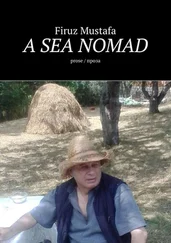“All hypocrites,” he used to say, “but not your father. Emir Salim al-Wyly is a devout man who is worthy of his position as defender of Islamic faith and tradition.” Ali did not say as much, but Salim could not do otherwise, or his status would have been untenable. Neither could he leave the country again, for fear of revolt, which would have his power usurped by the other tribes or worse, by the rising faction of religious fundamentalists. Many thought that only the British gunboats kept the fighting from re-starting.
Ali told her, “Some of the gold had not been wasted, because each tribe had nominated boys on whom it would be spent for their education. Some of the families had started businesses, usually trading in pearls or fishing because they knew no other honest way of making a living. Some were successful and had fortunes, which they banked overseas as Naamlah had no banks or even its own currency. When coins were required for trade, they used those of the Austro-Hungarian Empire, bearing the image of Marie-Louise of Austria. The Arabic students had been welcomed by American and European colleges, eager for a share of the gold.” Nahla was proud that her father had been one of the first of his generation to receive a Western education. Almost all of Nahla’s knowledge came from Ali, because no one else, including her father, had time for her questions and, as a girl, she could never expect to be educated. None of the other women with whom she lived, except the mermaid, had been. They knew only how to please men and bear their children. They could not even feed themselves without servants. If she had been a boy, life would have been different. The women would have worshipped her, met her every whim, and other men would have treated her with more respect even than that deserved by a fast camel, as was only right, she thought.
Chapter 6
The ladies had decided that what Salim needed to cure his impotency was a new young wife, to which end they had been making enquiries. They decided on Fatima.
Fatima was the younger of two daughters born to a cousin of Salim and Shalma, who owned and operated a fabric retail and importing business from their premises within the souk of Naamlah. The family lived behind the shop, where her two older brothers helped their father. As a child, she spent a lot of her time in the shop listening to the customers talking to her father and brothers. This had given her an unconventional interest and curiosity, for a girl, about the world outside the confines of her family and their home. Several customers were smitten by her beauty and high spirits, trying without success to reserve her for marriage to their sons or even themselves. When Fatima reached puberty, the time in her development when it was required that she cover her hair and limbs, wear the hijab and abaya, and generally dispose herself with modesty, she was now watched constantly by the men of her family. She was frustrated by no longer being allowed to meet or even be seen by strangers in the shop. She had always been inquisitive and resented the overnight change in attitude towards her by her family, who thought it unnatural and unnecessary for a girl to know anything beyond what her mother knew. They believed strongly that if she remained ignorant, she would be more pliable in the hands of her future husband. All men, they believed, preferred wives who were untainted by other men and who could be trained to be obedient, just like their camels. From their wedding night, many Arabic women of the past were taught the consequences of disobedience by their husbands. The ancient ritual of killing the cat was still preserved by some traditionalists.
Fatima refused to marry any of the four boys whose fathers had bid for her hand. Her father and brothers were beginning to despair and had decided that they would not allow her to refuse the next offer. As though in answer to her parent’s prayers, Layla visited Fatima’s mother and told her in confidence of Salim’s problem. The two women agreed that a spirited girl like Fatima could be the solution, and so agreed that if Fatima approved the match she should be Salim’s third wife. When told of this plan, the men agreed that they would not let her refuse this time. Fortunately, when she realised that she would be the wife of the Emir and live in the fort with servants to wait on her, Fatima did not hesitate.
***
After the wedding, Fatima and her newly acquired stepdaughter Nahla became friends immediately, and through Nahla she realised how useful Ali could be. Ali was not like the men of her family; he had no secrets and no fear of being belittled by a woman. He would happily gossip with them, keeping them informed about the world outside the fort.
***
On the day of the meeting between the tribes and the white men, after Nahla had left them, Fatima had Ali to herself, and asked him, “Who built the fort, Ali?”
“The Persians built it centuries ago to protect themselves from the Arabs. When they left, it fell to ruin, until the Turks came and rebuilt it,” he replied.
“What happened to the Turks?” she asked.
“They were driven out by the Arabs under Lawrence, the English soldier. Then your husband’s grandfather moved his family in for protection from the other tribes. The tribes started fighting each other after Lawrence lost support from his government, who reneged on their promise of Arab independence and with the French colonised Arabia and Mesopotamia, dividing it between Britain and France; but the al-Wyly tribe proved to be the stronger and became rulers of Naamlah with British backing,” said Ali knowledgeably.
“When did you come here, Ali?”
“They say I came as a child to serve Salim’s father. Salim was then a student.” Ali replied, deflecting the focus of her interest from himself to her husband.
Fatima noticed that Ali looked uncomfortable, so she left that subject. “Did you ever see the cannon fired?” she asked.
“Yes; when I was very young they were used once against the al-Jaboo tribe when they threatened to depose the Emir. It was all that was necessary to prevent further attacks,” replied Ali. Fatima was quiet for several minutes, and Ali wondered if she had finished this inquisition or if she was about to ask the inevitable question about how he lost his manhood.
Fatima asked, “Were the dungeons used recently?”
“The Turks had prisoners there before I came here, and the bones of some remained, I believe,” was Ali’s relieved response. “Salim’s father used the cells a few times for holding criminals before their trial and punishment, but since he built a police station for that purpose, they have just been somewhere cool for storing dates and a place for children to play when it is hot,” he continued. Ali reflected, “it is such a pity that she can’t read. She could learn so much more than I can ever tell her.”
Chapter 7
The courtyard of the fort was surrounded by buildings of mud bricks on two floors with battlements above. To the South, opposite the main gate, was the harem, occupying the first floor with stores and barracks below. The harem was accessible only by an enclosed brick staircase, at the top of which was a shaded porch where Ali slept. From the top of the stairs a wooden balcony enclosed by a teak latticed screen went all around the first-floor level. Ali’s porch led to a communal room where the floor was carpeted and where along each wall there were cushions on which the ladies could relax. Exposed timber beams, heavily carved with Koranic verses, supported the roof. The doors of the women’s bedrooms and that of a crude lavatory lead from here. Outside the lavatory, no more than a stinking unlit room with a hole in the floor, stood a row of high wooden platform shoes which protected the user from the mess that was by tradition, from the nomadic past, never cleaned from the floor except, as the religion dictated, by slaves, of which there were no more. Men slept in rooms on the north side, accessed via a separate staircase and a separate section of balcony. This was the shaded side, for Naamlah was north of the equator, where they received direct cooling breezes from the sea. Below was the big majlis, or reception area, which contained rows of cushions around the walls. On the east side were the kitchen, storerooms and servants’ quarters. A windlass in the kitchen served to raise water from the basement. On the west side was the mosque, which included a court where Sharia law was enforced, Salim’s office, the men’s sitting room and the stables. A hole in the wall of the court had, before Salim’s rule, received the arms of thieves, to divest them of their hands by an unseen operative. In the centre of the courtyard stood a brick construction with an iron gate that protected a staircase connecting to the basement. To this gate, criminals would be tied whilst they received their punishment lashes. In the basement, a spring rose which supplied water and which carried away waste to the sea. The remainder of the basement was divided into dungeon cells, each with iron doors, a guard’s mess, strong room, and a torture room for confessions, as required by the court when there were no male witnesses, but now a store for dates, and an armoury. Above the main gate was a platform where cauldrons of fish oil could be heated on braziers to pour onto invaders and where spears could be aimed at unwelcome visitors. With one exception, the strong room, Nahla knew every corner of every room in the fort.
Читать дальше












